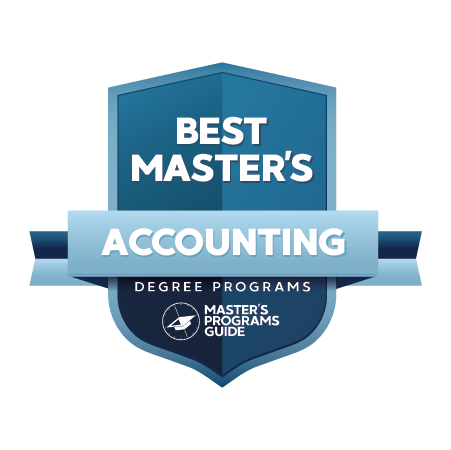Ready to find your ideal master's program?
www.mastersprogramsguide.com is an advertising-supported site. Featured or trusted partner programs and all school search, finder, or match results are for schools that compensate us. This compensation does not influence our school rankings, resource guides, or other editorially-independent information published on this site.
Are you considering a career in accounting? Becoming a CPA (certified public accountant) isn’t the only thing you can do with one of these rewarding degrees.
After earning one of the best masters in accounting, you could go into public accounting at a large firm. You could make six figures right out of college. Or you could teach at the undergraduate level. You could climb the corporate ladder. You could even start your very own accounting firm.
The options are endless! Pursuing one of the top accounting masters programs is worth it. But you’ll need to have a solid education in accounting backing you up.
What exactly is accounting? The field involves scrutinizing business and financial transactions to analyze, verify and then report the results in a public accounting report. When most people think of accountants, they think of the suits to whom they bring their tax returns each spring. But accountants can do so much more than basic forms and public accounting report audits.
A bachelor’s degree is all you need to land a high-paying job. However, if you earn a master’s degree in accounting, your opportunities will be even more extensive. You can rise to a leadership or management position. You could pursue a career as a chief financial officer or technology controller. You could even work as a corporate budget analyst.
The demand for these positions is high. And so is the pay. You’ll be tasked with managing others. So you’ll be able to command impressive wages.
Some of the top schools for financial and managerial accounting, in addition to the ones we’ve profiled on this ranking, include:
- New York University (New York University’s accounting master’s degree is offered by the Stern School of Business)
- Brigham Young University (offered by the BYU Marriott School)
- Arizona State University
- City University of New York
- Ohio State University
- UT Austin
- Florida State University
- University of Virginia
- University of North Carolina
- University of Georgia
- University of Washington
- University of Pennsylvania
- University of Southern California (USC Marshall School of Business)
- University of Mississippi
- University of Wisconsin
- Stanford Graduate School
- Emory University
- University of Michigan Ann Arbor
- University of Southern California
- University of Notre Dame
- University of Illinois
There are even online programs you can choose if you’re looking for a more convenient master of accounting program.
Finding the best master’s in accounting can be challenging but not impossible! There is an accounting master’s degree program for everyone.
One of the most common reasons to pursue a master’s in accounting is to prepare for the examination to become a Certified Public Accountant. If you don’t yet have this license, you can only carry out certain tasks. For example, you might only be able to prepare basic financial statements or in some cases, basic tax returns.
Become a CPA. You’ll be able to conduct audits, represent clients in IRS disputes, and review more complex financial statements.
All of these are excellent reasons to consider earning a master’s degree in accounting. Now, how do you find the best program?
Consider your interests. You may want to choose a program that allows you to choose a concentration. Accounting majors have many interests. There are all kinds of programs you can choose from, including:
- Accounting information systems
- Data analytics
- Professional accountancy
- Data management
- Information systems
- Accounting in the business world
- Auditing theory
- Accounting in the public and private sectors
- Financial reporting
The best accounting masters programs won’t be the same for each and every student. Most business schools offer a similar curriculum but aspiring accounting professionals need to do their research to find the best master’s in accounting programs for their needs.
You’ll need to find one that matches your career goals and your drive to succeed. Look for a degree with lots of opportunities to test your skills in the real world. Experiences like internships and study abroad are always helpful. So are cooperative learning opportunities, research programs, and fellowships.
You’ll quickly discover that there is some variation among the programs that are available. There are Master of Accounting programs. These are designed for students who want to work within the top levels of the accounting industry. They’re also great for those who have little to no experience in accounting.
There are also MBA in Accounting degrees and Master’s of Science in Accounting degrees. An MBA offers a breadth of knowledge. A Master of Science In Accounting offers a depth of knowledge. Otherwise, they are more or less the same!
Are you ready to show the world what an awesome accountant looks like? Walk the walk and talk the talk. Pursue one of the 10 best master’s programs in accounting.
We’ll tell you everything you need to know in this guide and in our accounting masters rankings!
What Are the Best Master’s in Accounting Degrees?
We know that you have educational goals that you’re itching to pursue. You may not know where to start. The editors of Master’s Programs Guide utilize a unique ranking methodology based on the following five aspects:
25% Overall Degree Affordability: Average cost of undergraduate and graduate tuition per school
25% Graduation Rate: Number of students who start at the university and actually finish there
20% Earnings Potential: Average mid-career salary of school alumni
20% Selectivity: The number of students who apply versus the number who actually get accepted
10% Online Graduate Offerings: The number of programs offered online in each department
At Master’s Programs Guide, we strive to do our best to guide you and your family toward a fruitful academic career. The pursuit of knowledge is a noble one. We want to help you reach your goals.
#1. Texas A&M University
Master in Accounting
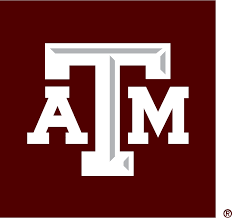 You’ll find one of the top accounting masters programs at Texas A&< University. Texas A&M University is one of the largest schools in the country. It has an enrollment of roughly 69,000 students. This public land-grant research university has the second largest student body in the United States. It is also home to one of the nation’s top accounting schools.
You’ll find one of the top accounting masters programs at Texas A&< University. Texas A&M University is one of the largest schools in the country. It has an enrollment of roughly 69,000 students. This public land-grant research university has the second largest student body in the United States. It is also home to one of the nation’s top accounting schools.
The Mays Business School offers a master’s in accounting. It has two separate tracks. Each one consists of approximately 13 classes or 37 credit hours of study. You can choose between two tracks. There is an assurance services/information management track. This is ideal for aspiring assurance services professionals.
There is also the tax consulting/financial planning track. This one is ideal for candidates who want to understand the fundamental aspects of tax strategy in the business world. You can even take a review course for the CPA exam during the final semester.
You will take core classes to prepare prospective students. This program, like most accounting programs require a core curriculum with classes that cover subjects like:
- Managerial accounting
- Accounting information systems
- Accounting research
- Data analytics
- Professional accountancy
- Accounting analysis
- Public accounting
- Corporate finance
- Accounting science
- Operations management
- Investment banking
- Financial statement analysis
- Understanding financial markets
- Information systems
- Modeling financial statements
- Advanced financial accounting
- Risk management
- Financial reporting
The master’s degree in accounting at Texas A&M University is one of the most career-focused. Like many other accounting schools and accounting master’s programs, you’ll gain the skills you need to prepare you for the CPA exam (certified public accountant exam). You will also build your oral communication skills so that you can work in accounting services of all kinds.
A core component of the curriculum is an accounting internship. This takes place in the spring or summer term. Many students find that their internships morph into full-time job offers following graduation. This accounting master’s program is perfect for all kinds of accounting majors with all kinds of career goals.
This school has an extensive alumni network. It is one that used to be known as the Association of Former Students of Texas A&M University. You’ll be able to take full advantage of the Career Management Center here. You can attend workshops and receive one-on-one coaching. This covers professional development, resume building, and job search strategies. You must complete a professional development seminar, too. In this, you’ll connect with industry experts. You can get a connection to employment opportunities in the region.
#2. Gonzaga University
Master of Accountancy (MAcc)
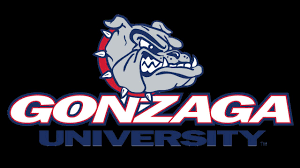 Another one of the top accounting masters programs can be found at Gonzaga University. Gonzaga University is a Catholic university in Spokane, WA. It is much smaller than many of the other universities in this ranking. It only has about 7500 students. Yet the school is one of the best if you’re looking for an accounting MS program. It is ranked as one of the best accounting programs by U.S. News & World Report.
Another one of the top accounting masters programs can be found at Gonzaga University. Gonzaga University is a Catholic university in Spokane, WA. It is much smaller than many of the other universities in this ranking. It only has about 7500 students. Yet the school is one of the best if you’re looking for an accounting MS program. It is ranked as one of the best accounting programs by U.S. News & World Report.
The university offers bachelor’s, doctoral, and master’s degrees in seven colleges. This includes the School of Business Administration. The Master of Accountancy program is technical. It trains students for rewarding careers in accounting. This is done through hands-on experience and industry-relevant training.
This program takes just two semesters. Courses are offered in a remote fashion as well as in person. You’ll take ten core classes (or 25 credit hours) plus five elective credits. You’ll complete a grand total of 30 credit hours for your degree.
The curriculum includes core classes such as:
- Financial Statement Analysis
- Accounting Theory
- Financial Accounting for Income Taxes
- Data Analysis for Accountants
You can take elective courses in the accounting department. Or you can branch out and take classes in taxation or the MBA program to diversify your degree. You don’t have this option with all accounting degree programs!
You’ll have plenty of opportunities to gain experience and make strong connections with industry partners. The Forensic Accounting Lab is one such example. This elective course will let you help local law enforcement officials prosecute white-collar crime. This is a wonderful experience that will allow you to put your training into action.
This university has a first-time CPA exam pass rate of 82%. It is number one in this regard on the West Coast and tenth in the nation among other accounting degree programs.
Not planning on becoming a CPA? Gonzaga still has plenty to offer. There is a 100% employment rate within three months of graduation. You can’t beat the statistics of this accounting degree program!
#3. University of Florida
Master of Accounting
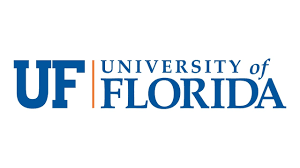 The University of Florida is home to more top masters in accounting programs. The University of Florida is a public land-grant research university in Gainesville, FL. It is perhaps best known for its intercollegiate sports teams, the Florida Gators. It’s also known for its academics.
The University of Florida is home to more top masters in accounting programs. The University of Florida is a public land-grant research university in Gainesville, FL. It is perhaps best known for its intercollegiate sports teams, the Florida Gators. It’s also known for its academics.
Here, you’ll find another one of the top Master of Accounting degrees. It is designed for students who completed their undergraduate training in accounting at another university and now want to attend the Fisher School of Accounting for graduate work.
It has three concentration options:
- auditing
- taxation
- general (no concentration).
It can be completed in as little as two years of study. All courses are offered on-campus in Gainesville.
The program is designed for students who want to sit for the Uniform Certified Public Accountant Examination. It includes core classes in:
- Accounting Regulation
- Governmental Accounting
- Issues in Audit Practice
- Accounting for Income Taxes
- International Auditing
You’ll be able to take around six credit hours of electives, too. You’ll learn everything you need, from how to prepare a public accounting report to how to file a tax return. This accounting degree program is one of the best for graduate students to consider.
#4. University of Illinois at Urbana-Champaign
Master of Science in Accountancy (MSA)
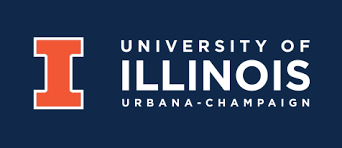 There are more best masters in accounting programs to consider in Illinois.
There are more best masters in accounting programs to consider in Illinois.
Sometimes referred to simply as the University of Illinois, the University of Illinois at Urbana-Champaign is a public land-grant research university. It is in the twin cities of Urbana and champaign. This is one of the largest public universities in the nation. It is also home to Research Park. It houses innovation centers for more than 90 start-up companies and multinational corporations. Examples? State Farm, Abbott, Capital One, Yahoo, and more.
The result? It’s a great place to get a hands-on education in just about any business discipline .
The University of Illinois at Urbana-Champaign offers another top accounting programs masters. It is ranked as one of the best in the world for its accounting programs by U.S. News & World Report. Its business programs are well regarded by this publication as well.
The curriculum is geared toward graduate students who have finished or are still working on their bachelor’s degree in accountancy at an accredited American university. It is a one-year degree completion program. It allows candidates to choose from two potential degree concentrations in auditing or taxation.
You will complete a blend of core classes and graduate-level electives. You will learn how to create a public accounting report and audit. Examples of classes include:
- Auditing and Insurance Standards
- External Risk Measurement and Reporting
- Corporation Income Taxation
There are other specializations you can choose from in order to meet the elective credit requirement. These include:
- finance
- corporate governance and international business
- supply chain management
- information technology and control
#5. University of Virginia-Main Campus
MS in Accounting
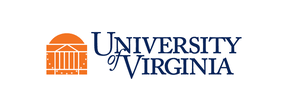 You’ll find another one of the top grad schools for accounting at the University of Virginia. This school was founded by Thomas Jefferson himself. The University of Virginia is one of the oldest universities in the country. It is in Charlottesville, VA and opened in 1819. It bore witness to the education of famous alumni such as the founder of Reddit and the creator of CNET.
You’ll find another one of the top grad schools for accounting at the University of Virginia. This school was founded by Thomas Jefferson himself. The University of Virginia is one of the oldest universities in the country. It is in Charlottesville, VA and opened in 1819. It bore witness to the education of famous alumni such as the founder of Reddit and the creator of CNET.
The school is known for its student-regulated honor code. In this, learners are required not to lie, cheat or steal. It is also known for its many secret societies. These societies aren’t as active as they once were. But rest assured, they are still around!
It’s no secret that the Master of Science in Accounting here is one of the best in the nation. It is ranked among the best business programs by U.S. News & World Report. It is in the McIntire School of Commerce. The program consists of 30 credit hours of study. It provides students with the ideal location. It is just over 115 miles from Washington, D.C.
These top masters of accounting programs have an impressive 91% job placement rate. The accounting degree has some of the best outcomes of all other competitors. Many graduates sign with Big Four firms. These accounting firms offer some of the best salaries. They have an average starting salary of $59,000.
These excellent outcomes are due in part to the quality instructors and exemplary curriculum. But they’re also due to the many hands-on learning experiences that are available for students here. You can take advantage of study abroad courses. These are in places like South America, Asia, and Europe. You’ll work with your classmates to develop the hands-on skills and critical thinking abilities you need to be a successful leader in accountancy.
Enroll in this program and you can choose from two different tracks. There is tax consulting or financial reporting and assurance. You’ll complete core classes like:
- Financial Trading
- Taxation of Partnerships and Flow-Through Entities
- Taxes and Business Strategy
#6. North Carolina State University
Master of Accounting
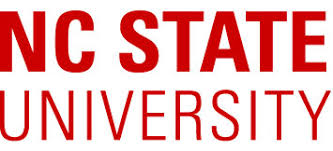 Another one of the best masters in accounting programs can be found at North Carolina State University. This school is known for its contributions to research and innovation. It forms one of the three points of the famed Research Triangle. The other points are Duke University and the University of North Carolina at Chapel Hill.
Another one of the best masters in accounting programs can be found at North Carolina State University. This school is known for its contributions to research and innovation. It forms one of the three points of the famed Research Triangle. The other points are Duke University and the University of North Carolina at Chapel Hill.
The programs focus on professional research and industry relativity. Your courses will be hands-on and collaborative. You can see firsthand how the concepts learned in class can be applied to a real-world setting. The Master of Accounting is offered by the Poole College of Management. It consists of 11 courses.
These programs are accredited and certified by the American Institute of Certified Public Accountants. They can be completed on-campus or online. It is meant to be completed in as little as one year. You can take longer to complete your classes if this fits your current schedule a bit better. The master’s of accounting online is designed with busy working professionals in mind.
You will be able to choose from a variety of concentrations. There are even study abroad options. You will take core courses like:
- Advanced Auditing
- Advanced Commercial Law
- IT Risk and Control
There are concentrations, too. Options include Enterprise Risk Management Information Technology, and Tax Strategy.
A bachelor’s degree in accounting isn’t required for admission to this program. But you will have to complete a series of courses in topics like business law, auditing, and accounting to be eligible for admission. The school has an impressive 100% placement rate within three months of graduation. Alumni earn average starting salaries of $54,700.
This excellent outcome is due in part to the quality instruction you’ll receive from the faculty in this program. It’s also due to the many opportunities for field-based learning. In addition to internships, research opportunities, and fellowships, you can also choose to spend four weeks studying in Prague over the summer semester.
#7. The University of Alabama
Master of Accountancy
 The University of Alabama is home to more of the best masters of accounting programs. The University of Alabama is a public research institution in Tuscaloosa, AL. It is the oldest and the largest of all the public universities in Alabama. It offers a variety of programs at the undergraduate and graduate levels. It’s home to unique programs that can only be found here. Examples include Romance languages, metallurgical engineering, and more.
The University of Alabama is home to more of the best masters of accounting programs. The University of Alabama is a public research institution in Tuscaloosa, AL. It is the oldest and the largest of all the public universities in Alabama. It offers a variety of programs at the undergraduate and graduate levels. It’s home to unique programs that can only be found here. Examples include Romance languages, metallurgical engineering, and more.
This school is also where you will find one of the country’s top accounting degrees. The Master of Accountancy is for students who are interested in working in accounting and assurance services. The program develops the cognitive, research, and communication skills students need to be successful. It also provides graduates with the training and core courses they need to sit for the CPA exam.
You’ll take at least 30 hours of graduate credits. These include 21 hours of core accounting courses. You’ll also be able to take electives that align with your unique career goals. There are pathways available in:
- assurance
- wealth management
- fraud investigation
- healthcare
…and more.
This degree is one of the most affordable programs in accounting you will find. Tuition and fees are low. Plus, the Culverhouse School of Accountancy often awards assistantships and scholarships to eligible students. Make sure you apply!
#8. University of Texas at Dallas
MS in Accounting
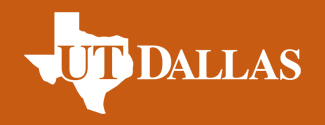 The University of Texas at Dallas is home to more of the best master in accounting programs. This is a sprawling university. The main campus is in Richardson. But there are multiple other locations in the city’s downtown area. It is known for its contributions to research in fields like bioengineering, nanotechnology, and cybersecurity. And of course, accounting.
The University of Texas at Dallas is home to more of the best master in accounting programs. This is a sprawling university. The main campus is in Richardson. But there are multiple other locations in the city’s downtown area. It is known for its contributions to research in fields like bioengineering, nanotechnology, and cybersecurity. And of course, accounting.
The Master of Science in Accounting is offered by the storied Naveen Jindal School of Management. You can take courses on-campus or online. If you plan to sit for the CPA exam, you’ll need to complete at least half of your 30 required credit hours on campus.
You’ll take core classes like:
- Managerial Accounting
- Financial Accounting
- Ethics for Professional Accountants
- Database Foundations
You can choose electives to customize your degree to meet your needs.
There are several concentrations available as part of this program. They include those in:
- taxation
- internal audit and risk assurance
- accounting analytics
- research professional accounting
#9. Indiana University Bloomington
MS in Accounting
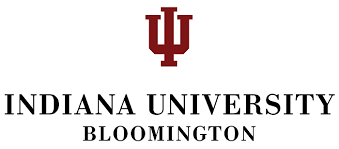 Enroll in the master of accounting program at Indiana University Bloomington. You’ll become a Hoosier. Plus, this is one of the top accounting grad schools.
Enroll in the master of accounting program at Indiana University Bloomington. You’ll become a Hoosier. Plus, this is one of the top accounting grad schools.
“A what?” you might be wondering. We’ll say it again. A Hoosier!
To be fair, nobody knows exactly what a Hoosier is. At least, not in the context of Indiana University. A Hoosier is anyone who is a native of Indiana, a non-native who has embraced the state as his own, or of course, a student at Indiana University. As for what exactly the word means, it’s unclear. But what you do need to know is this. When you become a Hoosier, you’ll join a group of fellow students and alumni that’s tens of thousands strong.
And what a group it is! Notable alumni include Wikipedia founder Jimmy Wales, billionaire Mark Cuban, and even Suzanne Collins, the author of The Hunger Games series. The school is referred to as a Public Ivy. Indiana University Bloomington offers learners the quality of a private school. But there is the lower cost and affordable tuition and fees of a public school.
That’s just one reason why U.S. News & World Report ranks it as one of the best business schools in the country. The Kelley School of Business is where you will find the Master of Science in Accounting. It is available on-campus as well as online. It features a flexible curriculum that will allow you to choose from subjects like:
- Data Analytics
- Taxation
- Assurance
- Risk Management
You will be able to choose the combination of electives. These can be ones that best fit your professional and personal goals. There are both one- and two-year programs available. A one year program is ideal for those who want to graduate quickly. A degree that takes two years is open to students who may not have the time to graduate within six months or a year.
The degree is flexible. There’s even a field consulting option. This will allow you to spend a semester in New York City. You can visit iconic destinations like the New York Stock Exchange and the Federal Reserve.
Don’t want to spend that much time away from campus? There’s also a three-day trip to Washington, D.C. It is embedded as part of the curriculum in the Accounting and Public Policy course.
It’s easy to see that you’ll get a ton out of this program. It has a 95% job placement rate within 90 days of graduation. It even offers a joint degree. In this, you can earn your master’s of science plus a Juris Doctor. It’s a one-of-a-kind program!
#10. DePaul University
Master of Science in Accountancy (MSA)
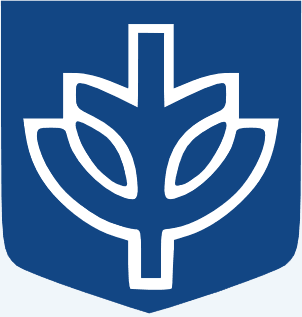 DePaul University is a private research university in Chicago, IL. This school has strong Catholic origins. It is the largest Catholic university by enrollment in the United States.
DePaul University is a private research university in Chicago, IL. This school has strong Catholic origins. It is the largest Catholic university by enrollment in the United States.
The school is best known for its programs for nontraditional students. About 90% of all students here live off-campus or commute. The university is also home to many international students. The student body represents more than 60 foreign countries.
DePaul University offers a top-ranked Master of Science in Accountancy. It can prepare you to become an industry-ready accountant. It’s perfect for candidates who are interested in sitting for the CPA examination and need a flexible opportunity to get them here.
This degree is available 100% online. You can also complete it on-campus or in a hybrid fashion. This is depending on your needs and preferences. You’ll take 12 required accounting courses. That’s along with four business courses. This will give you both the breadth and depth of dedication you need to be successful.
Some courses you’ll take include:
- Financial Accounting
- Tax Treatment of Individuals and Property Transactions
- Advanced topics in Accounting Theory
- Analysis of Business Conditions
You can take electives that are represented in the graduate school’s many other business majors, too. Examples include taxation or audit and advisory services.
You’ll gain the technical and foundational knowledge you need to perform essential accounting functions. You’ll also learn how to anticipate and solve new challenges in the field. You’ll learn from distinctive faculty as you pursue research areas. Research topics include:
- accounting education
- balance sheet and earnings management
- financial accounting reporting.
The result? DePaul’s accounting program has a 90% job placement rate. There’s an average salary of $61,500. Not too shabby! The degree offers a phenomenal return on investment. There is more than $3 million awarded to incoming students in scholarships each year.
FAQ
What master’s degree should a CPA get?
In order to become a CPA, or a Certified Public Accountant, you will need a minimum of a bachelor’s degree. This should be in accounting or a related field (like finance). The degree itself does not need to be in accounting. But you should complete a decent number of foundational courses in this field. This will prepare you for the exam (a minor in accounting is a smart choice).
A master’s degree is even better. Most states require CPAs to complete around 150 semester credit hours of study. Earning a master’s degree isn’t required to become a CPA. But it can help you meet this credit hour requirement. After earning your credits, you’ll need to pass the Uniform CPA Examination. This has a series of multiple-choice and task-based questions. There are also simulations and written communication tasks.
How long is a master’s in accounting?
Each master’s program varies in terms of its length and course requirements. Most students will take 12 to 18 months to complete their degrees. Some accelerated degrees can be completed in even less time than that. Would you like to take classes part-time to fit your schedule (or just because you prefer a slower pace)? Most programs allow up to six years to finish a program that you have started.
You will take classes that cover topics like:
- financial policy
- the principles of investment property and negotiable instruments
- taxes and business strategy
- information technology for accounting
You’ll complete around 30 to 36 credit hours. This is often with the addition of a thesis, capstone, or other hands-on experience.
Many of these programs also make it possible for students to choose concentrations in things like:
- accounting information systems
- auditing
- forensic accounting
- corporate accounting
- taxation regulation
What kind of jobs can I get after completing a master of accounting program?
After completing your studies in accounting, there are many types of jobs you might qualify for. Working as an accountant is an obvious choice. But you could also pursue work as an internal or external auditor, a securities or investment analyst, or a bookkeeper.
As an accountant, you’ll work to examine and prepare financial records. Complete your certification and become licensed as a Certified Public Accountant. This will improve your job prospects!
Choose to work as an auditor? Your job will be to keep an eye out for the mismanagement of funds. As an internal auditor, you’ll be working within a specific agency or company. But as an external auditor, you’ll work for an outside company (or governmental entity). This is one that is brought in to audit another business.
As a securities or investment analyst, you’ll provide businesses and individuals with the information they need to guide their monetary decisions. The goal will often be to make decisions that result in the highest profit possible.
You could also work as a bookkeeper. A bookkeeper is someone who produces financial records for organizations. You will also check those records for accuracy. This isn’t the highest-paying career you could get with an accounting degree. But it’s a great way to gain experience and build industry connections while you’re still in school.
What is the salary for a master’s in accounting?
There are so many job opportunities available to students who have graduated from master’s programs in accounting. Because of this, the salary range can also vary.
You can expect to make around $73,560 per year, according to the Bureau of Labor Statistics, as an accountant. You’ll earn an even higher salary if you receive a master’s degree. As well as if you work for an in-demand field like finance or insurance.
As an auditor, the salary range is a bit more variable. It depends whether you choose to work as an internal or external auditor. Payscale reports an average salary of around $58,182 for these professionals.
Choose to work as an analyst and you’ll find that your salary varies. It depends on the industry in which you work. Securities analysts tend to earn the highest salaries, on average, bringing in around $98,850. This is a high-paying field across the board. The highest 10% of workers bring in more than $159,560, according to the Bureau of Labor Statistics.
How do I get into the best accounting graduate school?
Admissions requirements for the best accounting graduate schools vary. To get a more detailed idea of what is required, it’s always smart to touch base with the admissions office at the university you plan to attend. Talk to your admissions advisor to find out the details.
Know that these programs share a few commonalities. Admissions committees look for candidates with strong professional and academic backgrounds. Keep your grades up and look for hands-on experiences wherever you can find them. That might be through work, volunteerism, or something else entirely.
You may to have a minimum undergraduate GPA of around 3.0. That doesn’t mean that you can’t apply if your GPA is on the lower end of the scale. Many of the best schools, including the legendary Wharton School at the University of Pennsylvania, accept candidates with GPAs as low as 2.7. You just need to make sure your application is strong in other areas!
You don’t necessarily need to have a background in accounting in order to apply, either. A bachelor’s in accounting is helpful. But admissions advisors really just want to see that you have experience in a related field. Majors such as business, economics, and mathematics are often satisfactory for admission, too.
Some programs, like MBA in accounting degrees, require applicants to have some work experience. You will need to submit a resume, letters of recommendation, and a personal statement. GMAT and GRE scores are often required. Waivers are often available for students with strong academic records or extensive professional experience. Graduate accounting programs can be tricky to apply to, but not impossible.
In fact, if you’ve already completed an undergraduate degree, you should find that applying to graduate accounting programs is similar.
Is it worth it to get a masters in accounting?
Many accounting programs are offered at the undergraduate level, but is it worth it to get a master’s in accounting? According to the Advance Collegiate Schools of Business, accounting is one of the most popular areas of study at the graduate level.
There are many reasons why accounting is such a popular choice. One of the main reasons is that it offers a high return on investment. Accounting graduates tend to earn more money than their counterparts with only an undergraduate degree. A master’s in accounting can provide greater job security and opportunities for advancement. It’s no wonder that so many accounting students choose to continue their education at the graduate level.
Is Master of accounting MA or MS?
There is some confusion about whether the Master of Accounting (MA) degree or the Master of Science in accounting (MS) accounting is the correct degree for those seeking to enter the accounting profession. According to the Association to Advance Collegiate Schools, both master’s in accounting options will give you the skills you need to work in professional accounting at major accounting firms.
The American Institute of Certified Public Accountants (AICPA) and the Association to Advance Collegiate Schools of Business both agree. Both state that both types of master’s in accounting are acceptable. That’s as long as the accounting program is offered by an accredited institution. Some advance collegiate schools may prefer applicants with a master’s in accounting. In general, the MA and MS accounting programs are very similar. Either master’s in accounting can give students the knowledge and skills they need to enter the accounting profession.
What is the best masters degree for an accountant?
The best masters degree for an accountant depends on the accounting program that the student is interested in. For those who want to pursue a career in public accounting, the best choice is a Master’s in Accounting from an Advance Collegiate School of Business.
This type of accounting program emphasizes auditing and tax. It provides students with the skills and knowledge they need to succeed in the accounting profession. For students who are interested in working in corporate accounting, a Master’s in Business Administration with a concentration in accounting may be a better choice. This type of program provides students with the business skills they need to work in a corporate accounting department. It can also open up opportunities for advancement within the company. The best masters degree for an accountant depends on the student’s specific goals and interests.
What are the best schools to earn a Master’s in Accounting?
Some other top schools to earn an accounting degree include:
- New York University (New York University’s Stern School of Business is one of the best)
- Brigham Young University (Brigham Young University has an exceptional master of accounting program in the BUY Marriott School)
- Stanford University
- University of Maryland College Park
- Rice University
- University of Wisconsin School of Business
- University of Notre Dame
- University of South Carolina Emory University
- Arizona State University
- Fisher College
- CUNY Baruch College (the Baruch College location is ideal for aspiring finance professionals)
- North Carolina State University (particularly UNC Chapel Hill)
- University of Michigan Ann Arbor
- University of Washington
- University of Texas Austin
- University of Florida
- Texas A&M University College Station
- Florida State University
- Boston College
- Ohio State University
- Terry College
Is a Masters in accounting hard?
When deciding whether or not to pursue a master’s in accounting, it’s important to consider the difficulty of the program. Accounting programs are designed to challenge students. They are meant to prepare them for a career in the accounting field. A master’s in accounting does not need to be difficult. Most advance collegiate schools offer plenty of resources to help you gain the skills you need to work in major accounting firms. Without the stress of professional accounting!
Most accounting programs are quite demanding. There are also a number of resources available to help accounting students succeed in a master’s in accounting. For example, many accounting programs offer tutoring and other academic support services. Accounting students can often find helpful study materials online or through professional organizations.
With commitment and hard work, most students find that they are able to successfully complete an accounting program.
What is the difference between an MBA and a Masters in accounting?
The Master of Business Administration (MBA) is a graduate degree that is often obtained from advance collegiate schools. The accounting program is designed to give students the accounting and finance knowledge they need. It helps to pursue careers in accounting and related fields. A master’s in accounting (MAcc) is also a graduate degree. This accounting program is a master’s in accounting that is designed for students who want to pursue careers in accounting and auditing. The MAcc accounting program is completed in two years. The MBA program can take up to four years to complete.

